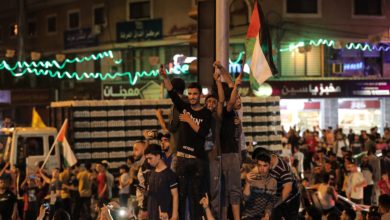On Feb. 25, Britain, junior partner of U.S. imperialism, announced that it would pull 1,600 troops from Iraq in the coming months. It will cut its troop levels to below 5,000 by late summer 2007.
This is another embarrassing blow for the U.S. ruling class and its imperialist occupation of Iraq.
 |
It comes as the U.S government is implementing a troop increase—something that has stoked widespread popular anger. In the lead-up to the 2003 U.S.-led invasion, British prime minister Tony Blair appeared dozens of times with George Bush to underscore the importance of waging war against Iraq.
Before the announcement, the country had 7,100 troops in Iraq—a relatively small number, but the most significant force next to the 135,000 U.S. soldiers there. Britain was essentially the only other significant imperialist ally in the so-called coalition that invaded Iraq in March 2003.
For the past four years, British troops have been stationed in the southern part of Iraq. They have encountered stiff and sustained resistance to their presence as colonial occupiers.
Yet, U.S. secretary of state Condoleezza Rice, Vice President Dick Cheney, and White House press secretary Tony Snow all called Britain’s move a “sign of progress” in southern Iraq.
Tony Blair, for his part, has been busy spinning the withdrawal as somehow reflecting the “stability” in Basra. “The next chapter in Basra’s history will be written by Iraqis,” Blair said.
But Britain’s partial withdrawal is a clear indication of the strength and organization of the resistance in Iraq, and also the sustained and deepening anti-war sentiment within Britain. Blair’s popularity ratings have plummeted over his government’s enthusiastic participation in the colonial occupation of Iraq.
The Washington Post reported that a poll this week showed that only 29 percent of respondents would vote for Blair’s Labor Party, while 42 percent favored the opposition Conservative Party—the worst showing by Labor since 1992. In the last election, Blair’s Labor party lost parliament seats.
The Washington Post reported that Salam al-Maliki, a senior official in the Shiite political bloc loyal to Moqtada al-Sadr, said any violence in Basra would cease once the foreign troops are gone. “The militias and militant groups in these areas only fired their weapons at the occupier and when they go, all of the violence here will end,” he said.
Because of the strength of the Iraqi resistance British troops have been forced to retreat. But the retreat is not complete. Next to the United States, Britain still will have the second largest presence of troops in Iraq. And Britain will increase its troop deployment to Afghanistan. The British government has said that it may have occupying troops in Afghanistan for up to 10 years.
The strong anti-war movement in Britain organized a large protest in London on Feb. 23 to demand all British and foreign troops out of both Iraq and Afghanistan.
“Whether 2,000 troops come home this year or not, it is too little too late and we must intensify our call for all troops to be withdrawn now and for Britain to break the link with George Bush’s foreign policy,” said Lindsey German, head of the Stop The War Coalition, which organized the demonstration.
Here in the United States, huge protests will happen on March 17-18, the fourth anniversary of the invasion of Iraq. The primary national action will be a march on the Pentagon on March 17, with regional actions in Los Angeles, San Francisco and Seattle.





